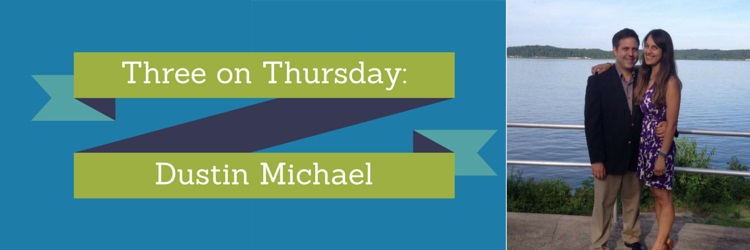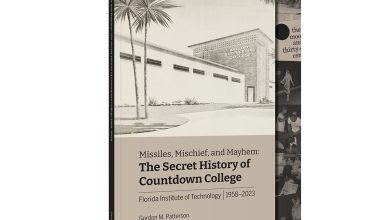Three on Thursday: Interview with Dustin Michael
When I had the idea to do a weekly interview series with three questions about creativity and writing, I knew I wanted to kick it off with one of my friends who is an amazing writer, Dustin Michael. Fortunately he agreed! Dustin is currently a professor at Savannah State University. He and his wife Neesha led workshops at the 2013 Creative Writing Institute at Florida Tech. His essays, poems, fiction and graphic memoirs have appeared in numerous journals, as well as in various anthologies and textbooks.
What is the last topic you wrote about? If you’re a creative writer, tell us about what inspired your composition. If you’re a student or scholar doing research, explain the context of your piece and what motivated you to choose that topic.
Dustin: I write creative nonfiction, and the last thing I wrote was a short essay about being a father at a time when mass shootings seem to be happening every other week or so. This was after the last one, where I think another man in another darkened theater shot some more people, and, as I understand it, some of them were sitting right in front of him, watching the film. It’s like, what were those people going to do, you know? There are these big arguments about guns and about preparedness, but really, how does anybody prepare for being shot in the back of the head in the dark? It’s terrifying. That, to me, is the perfect example of the ultimate powerlessness of living and of raising children. So I tried to write something about that and to maybe play with that tension between the illusion of protection and of having control, and the total chaos and savagery of the world we seem to be living in now.
What conclusions or assumptions (right or wrong) might someone make if they looked at the books on your bookshelf/desk/backpack right now? Tell us about some particularly interesting selections and any books you’d recommend to others.
Dustin: That person would probably conclude that I have an obsession with crappy mass-market genre fiction paperbacks because I there are tons of those around this joint. But that’s mainly because I pull a shift or two a week at a bookstore, and sometimes the guys in receiving strip the covers off those and let the booksellers take them home for free. I’m a sucker for free books. I don’t even care. As for a book recommendation, if you want to laugh until your guts hurt, you need to read The World’s Largest Man by Harrison Scott Key. It came out a couple months ago, and it’s just a riot.

What or who inspires you when you are feeling creative? Your response doesn’t necessarily have to be about writing. It could be about anything you do to express yourself creatively and the inspiration that fuels that creativity.
Dustin: I was in a martial arts class when I was younger, and I got pretty far in that, but then I fell out of it when “life” started happening—school and marriage and kids and stuff. I think that’s probably how it goes with everybody’s hobbies. But recently I was thinking, man, I’m so shaky and stiff, I wish I were more flexible, so I started doing the warm-ups, stretches, and forms again, and I remembered something very important in the process that has helped me with writing and teaching writing. The way the martial arts instructors taught was, they would show us a move, then stop. Then we would practice that move over and over. Then they would make us do that one move again, and if it was OK, they would add another move to it, then stop. We would practice that first move we’d been doing, adding the new move, over and over, and if those were OK, they would add a third move, and so on. We would never stop practicing the first thing they ever showed us, and we always had to master what we’d already begun before we got to work on new stuff. I think at some point I unlearned this process. It probably happened in grad school, when there were huge papers that had to be written quickly, and there was so much information to cram in before the next class in order to say that one smart-sounding thing to placate the professor and impress the other grad students. That was doing what it took to stay afloat. But the way my martial arts instructors taught was a good method, too. It’s especially good for learning writing, which isn’t like a standardized test where the point is to score as many right answers before time runs out and to skip or guess on the difficult and time-consuming stuff. Writing is difficult and time-consuming. Also, I think it’s easy to forget that writing is something that takes practice. If I don’t practice writing, I get shaky and stiff. So I’ve been trying to train at writing like how my martial arts instructors taught me to train at kicking, punching, and blocking—one sentence at a time. It’s a slow way to write, but what’s the rush? These are my thoughts, after all. I am visualizing them as liquid. I try to let them flow out instead of squeezing them out, but also to maintain control of the flow. I am imagining the twenty-six letters of the keypad as hollow vessels that the liquid thought is slowly filling. I write a sentence. I stop. I read the sentence I wrote. If it’s okay, I write another. I stop. I read those two sentences together. If they’re okay, I write another.
Check out some of Dustin’s work at Brevity and Sweet: A Literary Confection.





